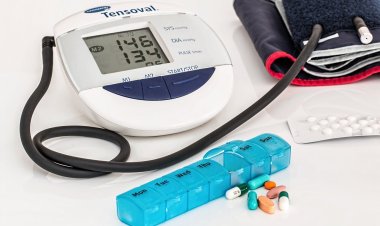Common Medication Found Effective at Reducing Odds of Serious Outcomes for COVID-19 Patients
Researchers have found that metformin, a commonly prescribed diabetes medication, lowers the odds of emergency department visits, hospitalizations, or death due to COVID-19 by over 40 percent; and over 50 percent if prescribed early in onset of symptoms.

Trial compared the effect of ivermectin, fluvoxamine, and metformin in randomized double-blinded placebo- controlled trial.
Scientists have found that metformin, a commonly prescribed diabetes medication, lowers the odds of emergency department visits, hospitalizations, or death due to COVID-19 by over 40 percent; and over 50 percent if prescribed early in onset of symptoms.
The study, which was published on August 18 in the New England Journal of Medicine, also found no positive effect from treatment with either ivermectin or low-dose fluvoxamine.
The research was led by the University of Minnesota Medical School and School of Public Health.
“We are pleased to contribute to the body of knowledge around COVID-19 therapies in general, with treatments that are widely available,” said Carolyn Bramante, MD, principal investigator of the study.
Bramante is an assistant professor of internal medicine and pediatrics at the U of M Medical School. “Our trial suggests that metformin may reduce the likelihood of needing to go to the emergency room or be hospitalized for COVID-19.”
Bramante noted that this was a secondary outcome of the trial. The primary outcome included whether someone had low oxygen on a home oxygen monitor. None of the medications in the trial prevented the primary outcome.
The COVID-OUT trial was the nation’s first to study whether metformin, a medication for type 2 diabetes; low-dose fluvoxamine, an antidepressant; and ivermectin, an antiparasitic, or their combinations could serve as possible treatments to prevent emergency department visits or hospitalization, as well as Long-COVID.
Dr. Carolyn Bramante from the University of Minnesota answers questions about COVID OUT. Credit: University of Minnesota Medical School
The study design was simple and straightforward. Patients were randomly assigned to receive one of the three drugs individually, placebo, or a combination of metformin and fluvoxamine or metformin and ivermectin.
Even though the study was placebo-controlled with exact-matching placebo pills, Dr. Bramante says 83% of volunteers received medications supported by existing data because of the six-arm design.
Each volunteer received 2 types of pills to keep their treatment assignment hidden, for 3 to 14 days of treatment. Each participant tracked their symptoms, and after 14 days, they completed a survey.
The 1,323 participants in the trial were limited to adults with a body mass index (BMI) greater than or equal to 25 kg/m2, which qualifies as overweight – for instance, someone who was at least five feet and six inches tall and weighed more than 155 pounds.
To qualify for the study, participants voluntarily enrolled within three days after receiving a positive COVID-19 test. It was among the first randomized clinical trials for COVID-19 to include pregnant women.
The study included both those who were vaccinated against COVID-19 and those who were not. This is the first published trial where the majority of participants were vaccinated.
The clinical trial launched in January 2021 after U of M Medical School scientists identified, through computer modeling and observational studies, that outpatient metformin use appeared to decrease the likelihood of mortality from, or being hospitalized for, COVID-19. Their research, in partnership with UnitedHealth Group, was published in the Journal of Medical Virology and in The Lancet Healthy Longevity. Test-tube studies also found that metformin inhibited the Covid-19 virus in lab settings. These findings, along with additional prospective studies supporting the use of higher-dose fluvoxamine and ivermectin, provided the evidence to include all three medications as well as combination arms.
“Observational studies and in vitro experiments cannot be conclusive but do contribute to bodies of evidence,” said Bramante, who is also an internist and pediatrician with M Health Fairview.
“To complete this study, we enrolled volunteers nationwide through six institutions in the U.S., including in Minneapolis.”










